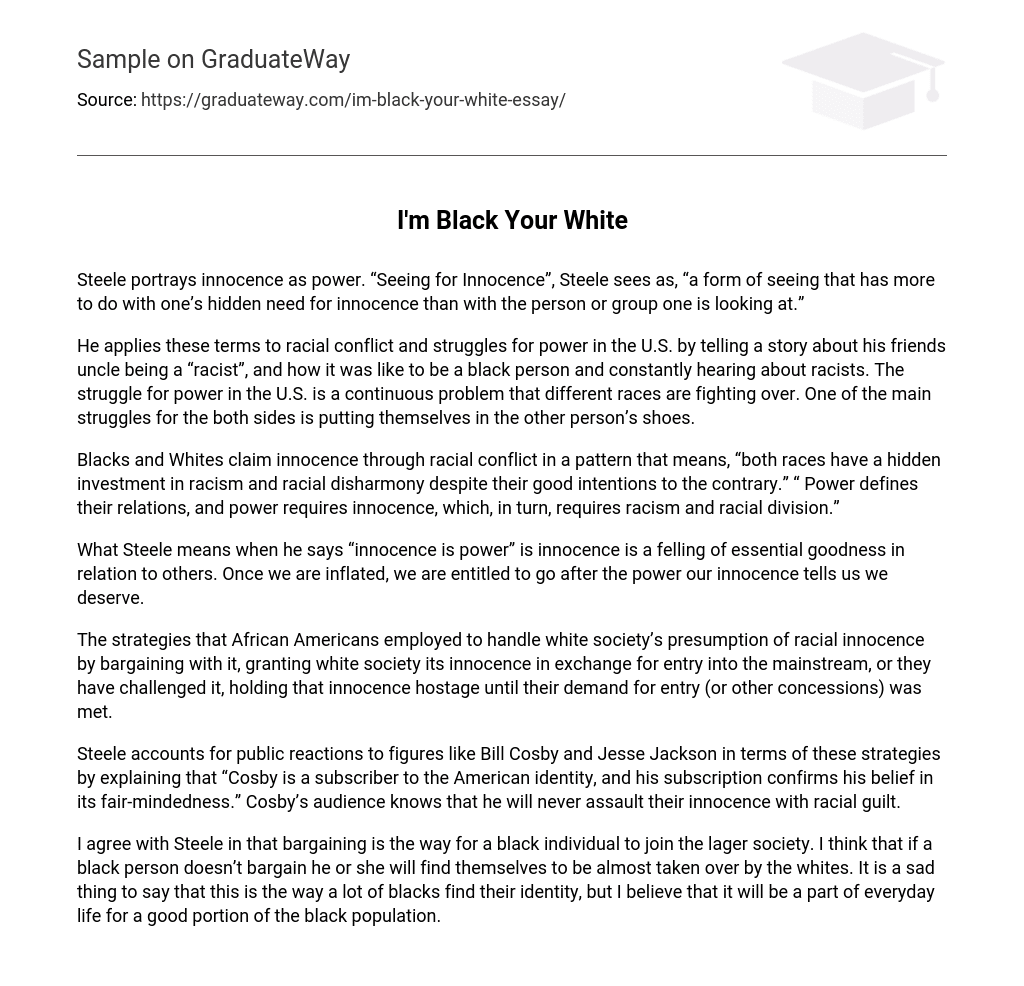Steele portrays innocence as power. “Seeing for Innocence”, Steele sees as, “a form of seeing that has more to do with one’s hidden need for innocence than with the person or group one is looking at.”
He applies these terms to racial conflict and struggles for power in the U.S. by telling a story about his friends uncle being a “racist”, and how it was like to be a black person and constantly hearing about racists. The struggle for power in the U.S. is a continuous problem that different races are fighting over. One of the main struggles for the both sides is putting themselves in the other person’s shoes.
Blacks and Whites claim innocence through racial conflict in a pattern that means, “both races have a hidden investment in racism and racial disharmony despite their good intentions to the contrary.” “ Power defines their relations, and power requires innocence, which, in turn, requires racism and racial division.”
What Steele means when he says “innocence is power” is innocence is a felling of essential goodness in relation to others. Once we are inflated, we are entitled to go after the power our innocence tells us we deserve.
The strategies that African Americans employed to handle white society’s presumption of racial innocence by bargaining with it, granting white society its innocence in exchange for entry into the mainstream, or they have challenged it, holding that innocence hostage until their demand for entry (or other concessions) was met.
Steele accounts for public reactions to figures like Bill Cosby and Jesse Jackson in terms of these strategies by explaining that “Cosby is a subscriber to the American identity, and his subscription confirms his belief in its fair-mindedness.” Cosby’s audience knows that he will never assault their innocence with racial guilt.
I agree with Steele in that bargaining is the way for a black individual to join the lager society. I think that if a black person doesn’t bargain he or she will find themselves to be almost taken over by the whites. It is a sad thing to say that this is the way a lot of blacks find their identity, but I believe that it will be a part of everyday life for a good portion of the black population.





